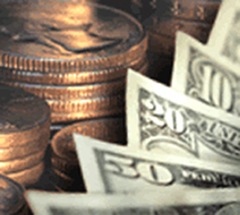I really thought it would take longer than this.
 If you have been reading this blog for a while you know that I am generally skeptical of the proposition that we will learn much of anything from the Great Recession. My assumption has long been that given five or ten years we will be the same bunch of ignorant fools we always were, doing the same foolish things.
If you have been reading this blog for a while you know that I am generally skeptical of the proposition that we will learn much of anything from the Great Recession. My assumption has long been that given five or ten years we will be the same bunch of ignorant fools we always were, doing the same foolish things.
But I did think that in the shorter term, this year and next, some of the more obviously foolish stuff would be avoided. I didn’t think anybody would be willing to invest in GM in 2010. And I didn’t think that anybody would be discussing taking out new no-money-down mortgages any time soon. I was wrong on both counts.
Read more »
It’s time for one of my periodic post-topic cop outs, in which I string together a collection of little things I want to bring up because I can’t think of a topic worthy of an entire post.
Links
I’ll start with a link. Promise you’ll come back afterward.
Best headline ever.
And another:
Much worse than confusing adverse with averse.
Man Sentenced to Poker
I generally like the law. But sometimes professionals in that field, lawyers and judges, can spend so much time concentrating on the minutiae that they lose sight of the big picture. They make one tiny logical step after another until they get lost in the forest they couldn’t see for the trees.
Read more »
[This Thursday rerun first appeared August 5, 2009]
Last week the Baltimore Sun ran a list in picture gallery form of "Money Wasters to Avoid." It got picked up by the often amusing Consumerist, which  was then noticed by the WSJ’s [now, sadly, defunct] The Wallet, which is where my jaded mouse found it. And now I am going to write about it too.
was then noticed by the WSJ’s [now, sadly, defunct] The Wallet, which is where my jaded mouse found it. And now I am going to write about it too.
To be fair, this particular bit of sound in the blogosphere echo chamber hasn’t much substance and likely wasn’t intended to be taken very seriously. I imagine a few summer interns brainstorming a list of things people waste money on, rounding up some stock photos, and then poof, it’s internet content.
But if I limited myself to commenting on things that truly deserve comment this blog wouldn’t be much fun to write.
The thirteen wasters of money are: the lottery, books, eating out, pets, DVD rentals, ATM fees, cigarettes, coffee breaks, bottled water, designer clothing, car washes, speeding, and bars.
Read more »
With a coordination that I am sure both found embarrassing, The New York Times and The Wall Street Journal both ran stories on Saturday with tips on how to deal with a bout of deflation.
This raises several questions. Do we expect deflation? If so, why? What is deflation, anyway? Why is it so bad? Is the advice from these two giants of the mainstream any good? And what was it about last weekend that inspired them to write about, of all things, deflation?
That’s a long post’s worth of rhetorical questions. So, without further ado, let’s dive right in. Personally, I do not expect deflation in the near term, at least not enough to notice. Whether or not it is expected, or even seriously worried about, in the larger investment community is a harder question to answer.
The WSJ opens its piece telling us that “The markets are signaling that a bout of deflation may be coming.” But the only market indicator cited is a rally in bonds. True, the yield on 10-year Treasuries is down this year, although it is up from where it was at the end of 2008. And yet a rally in bonds is not exactly an unambiguous statement about deflation. The bond market goes up and down all the time. Why is this rally a deflation prediction?
Read more »
SmartMoney carried an item the other day about how, according to a new survey, those crazy kids have found another way to act foolishly. They are  taking less risk with their investments.
taking less risk with their investments.
The factual basis for believing that younger people are taking less risk is a little thin, a single question on a survey of affluent Americans (Aflo-Americans?) done by Merrill Lynch. Still, it confirms my previously held beliefs and even fits into predictions of the future I made more than a year ago, so I am going to go with it.
52% of those under 34 described themselves as having a low risk tolerance. That is more than either the 35 – 50 age group (45%) or 51 – 64 group (46%). Only the oldest, and presumably retired, 64+ group came in at a higher rate of low tolerance, at 55%.
Read more »
 If you have been reading this blog for a while you know that I am generally skeptical of the proposition that we will learn much of anything from the Great Recession. My assumption has long been that given five or ten years we will be the same bunch of ignorant fools we always were, doing the same foolish things.
If you have been reading this blog for a while you know that I am generally skeptical of the proposition that we will learn much of anything from the Great Recession. My assumption has long been that given five or ten years we will be the same bunch of ignorant fools we always were, doing the same foolish things.


